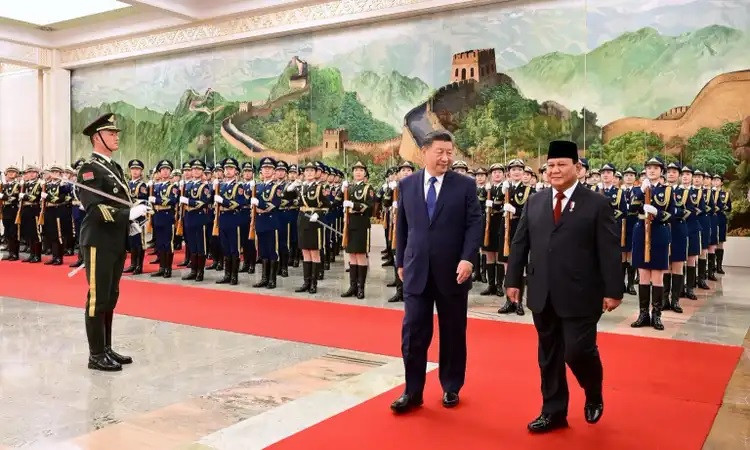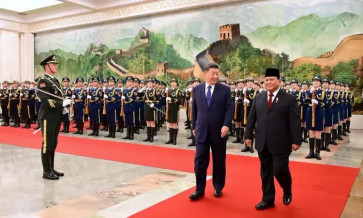Popular Reads
Top Results
Can't find what you're looking for?
View all search resultsPopular Reads
Top Results
Can't find what you're looking for?
View all search resultsA leader abroad, a nation in turmoil, democracy at risk
A government that relies too heavily on security forces and foreign symbolism without addressing domestic grievances may find its legitimacy steadily eroding.
Change text size
Gift Premium Articles
to Anyone
T
he past week has been unsettling for Indonesians. While demonstrations filled the streets, leaving casualties and hundreds detained, President Prabowo Subianto flew to China on Tuesday evening to attend a military parade on Wednesday.
Prabowo had previously canceled the trip to China, which included participation in the Shanghai Cooperation Organization, and sent Foreign Minister Sugiono on his behalf instead. State Secretary Prasetyo Hadi said the President were expected to fly back home on Wednesday evening.
Prior to his overseas trip, Prabowo honored injured police officers with promotions yet made no mention of students killed in the nationwide demonstrations. The contrast was glaring: The state appeared more concerned with its armed enforcers than with grieving families.
In political theory, Max Weber’s notion of legitimacy is not only about holding legal authority but also about meeting the expectations of the governed. A government that fails to acknowledge suffering undermines its moral claim to rule. By choosing to project power abroad rather than attend to unrest at home, Prabowo risks deepening the gap between state authority and societal trust.
Foreign policy is often used by leaders as a stage to demonstrate strength, especially in times of domestic strain. Political scientists call this “diversionary diplomacy”, projecting influence abroad to distract from fragility within. Yet this strategy only works when domestic discontent is manageable. In Indonesia’s case, the optics of absence during turmoil are difficult to justify.
The visit to Beijing was diplomatically fraught as well. Japan, still sensitive to wartime memory, interpreted the parade as an anti-Japanese commemoration. Tokyo’s displeasure over Indonesia’s participation disrupted what should have been a routine engagement. Instead of advancing Indonesia’s diplomatic standing, the trip created unnecessary tension with a key partner.
More importantly, the symbolism at home was troubling. Citizens saw a president comfortable among foreign generals but reluctant to face his own people. When a leader responds to protest with a heavy deployment of soldiers and police rather than dialogue, governance risks slipping into coercion.



















